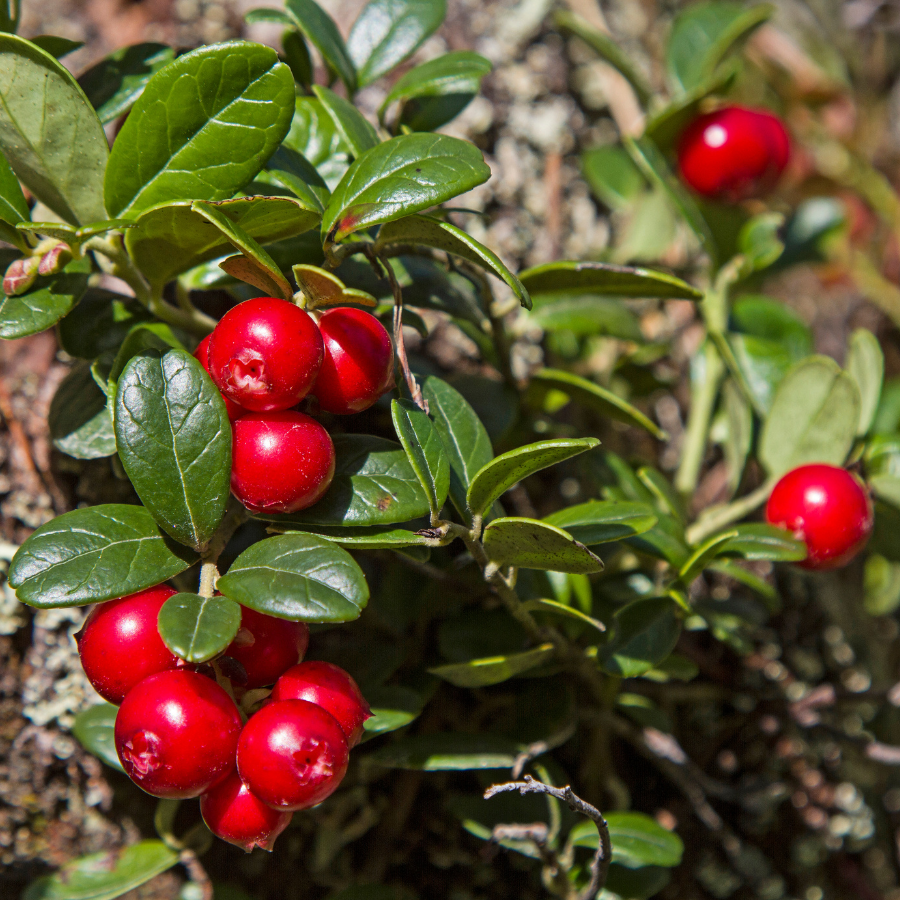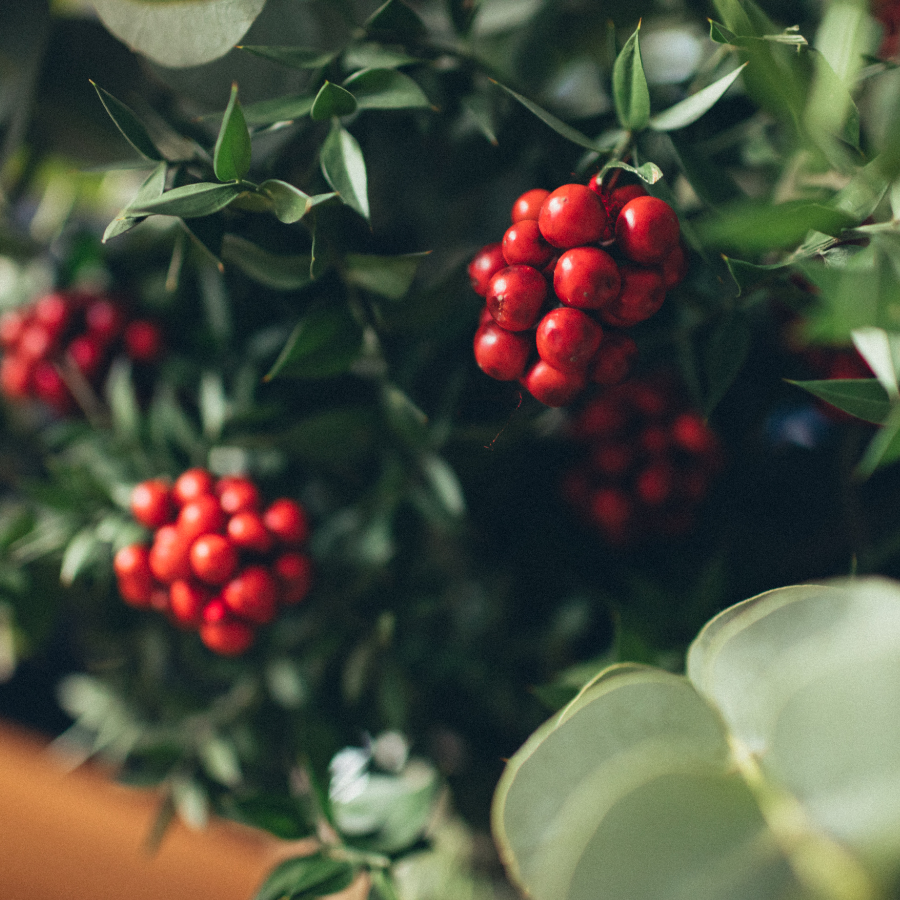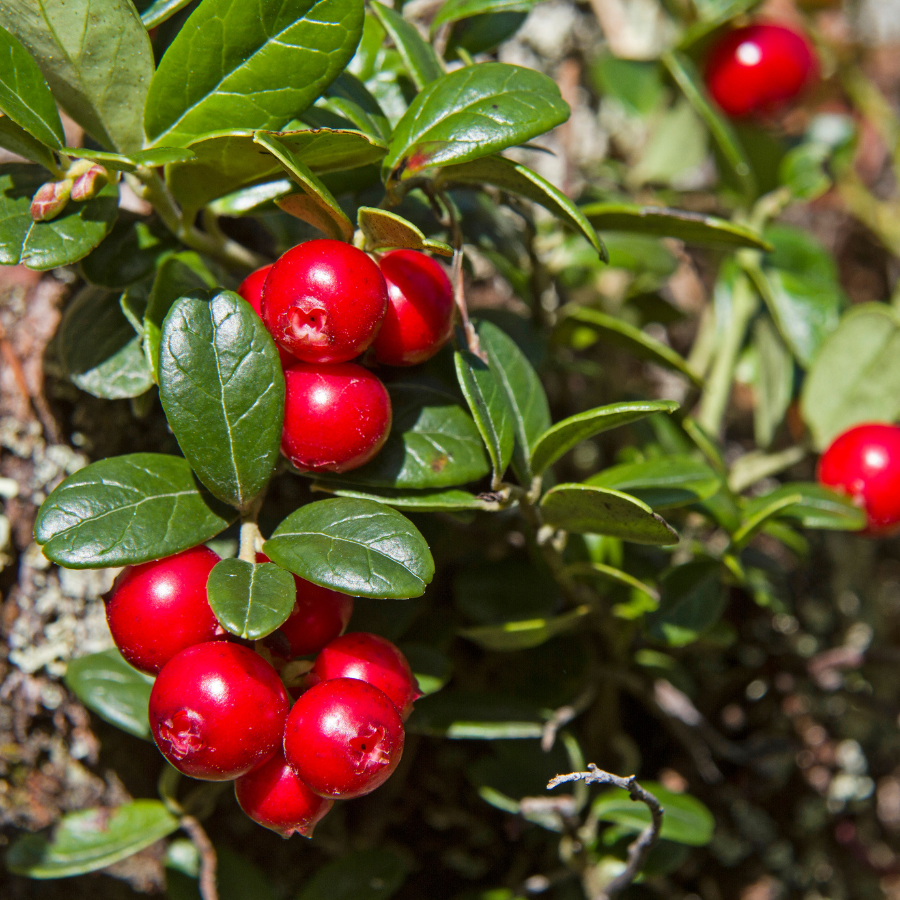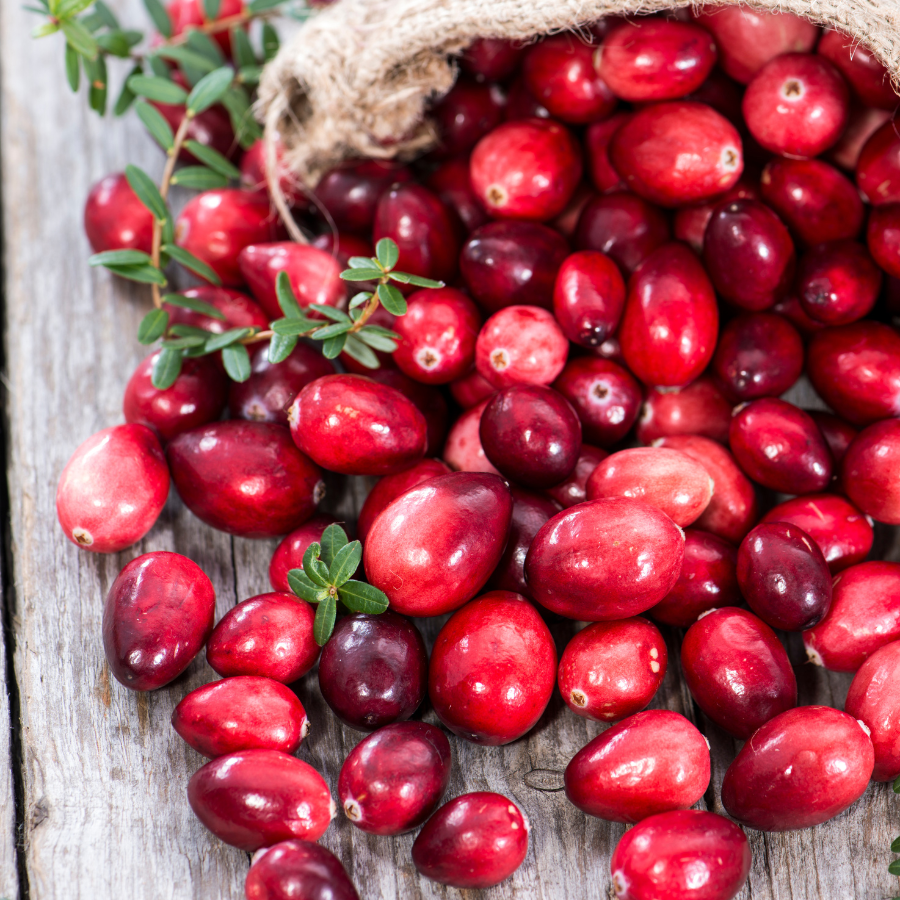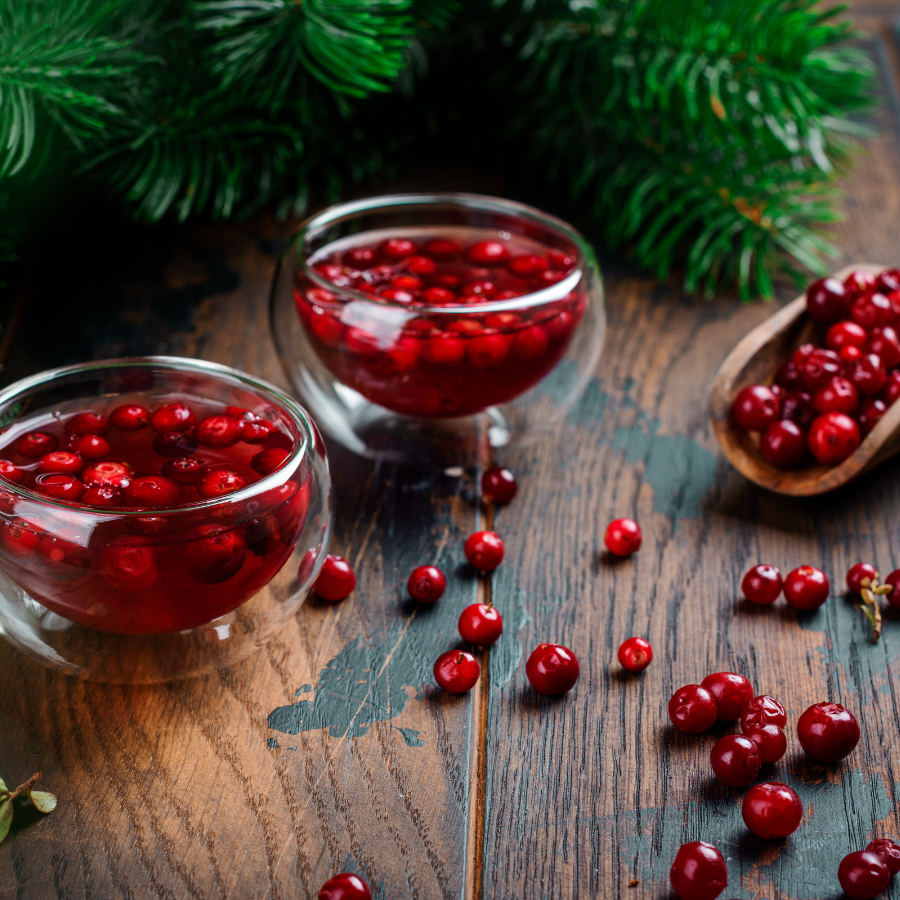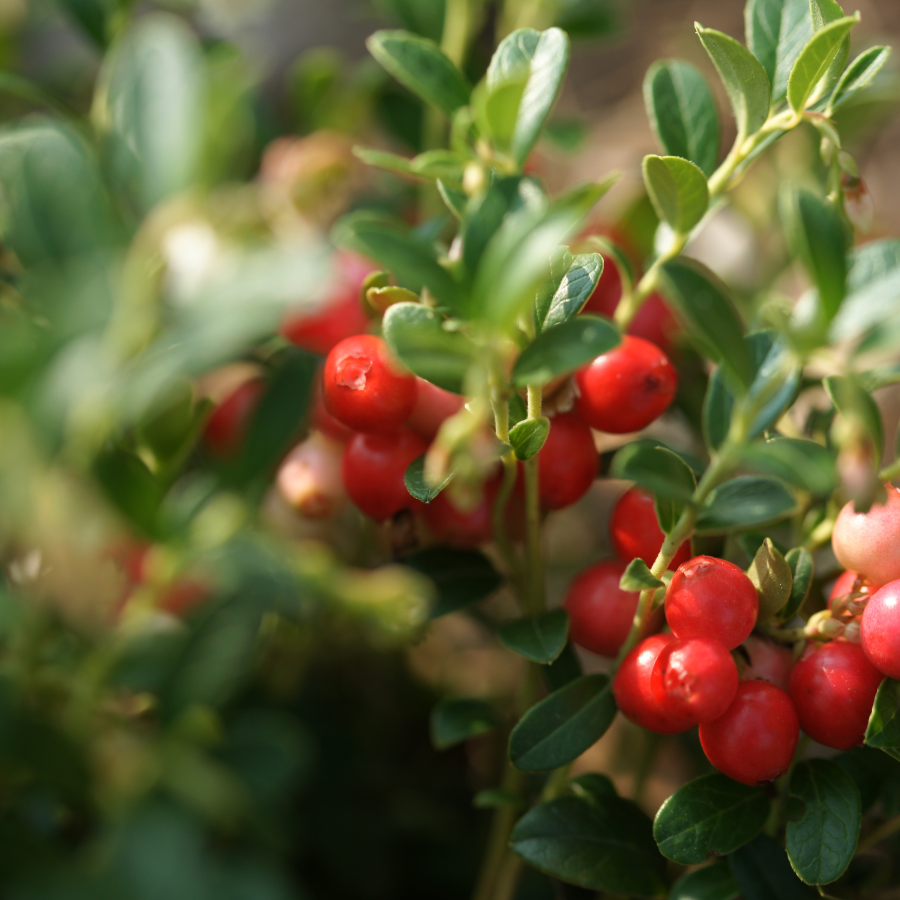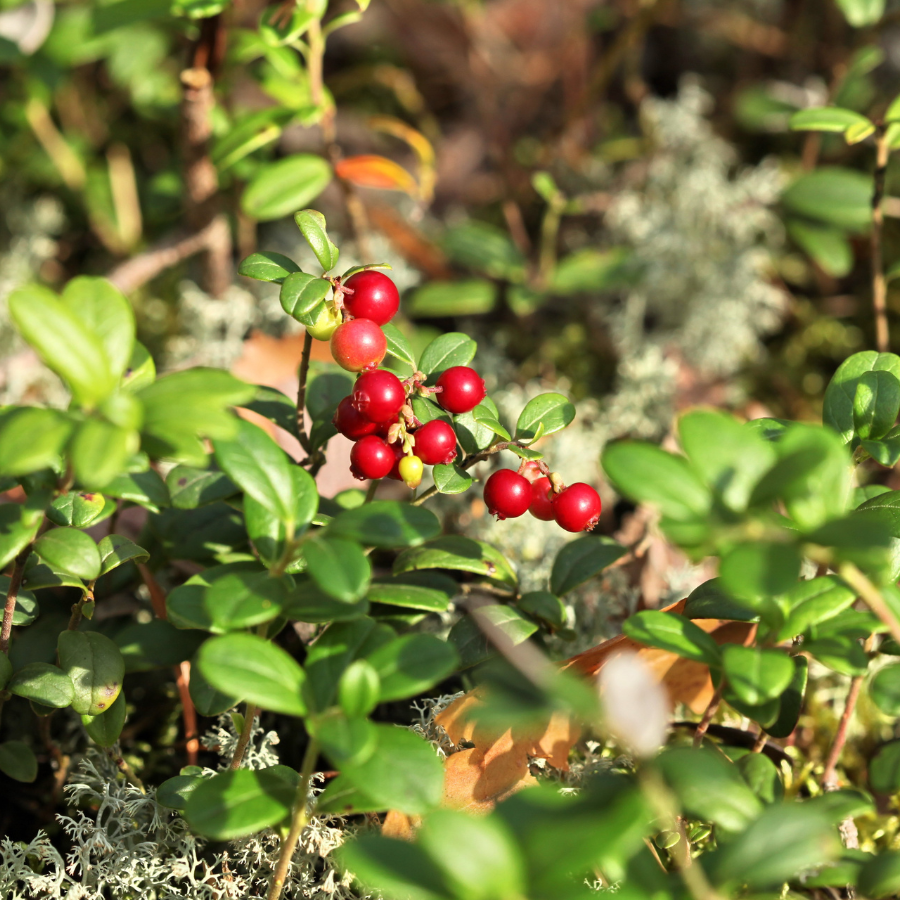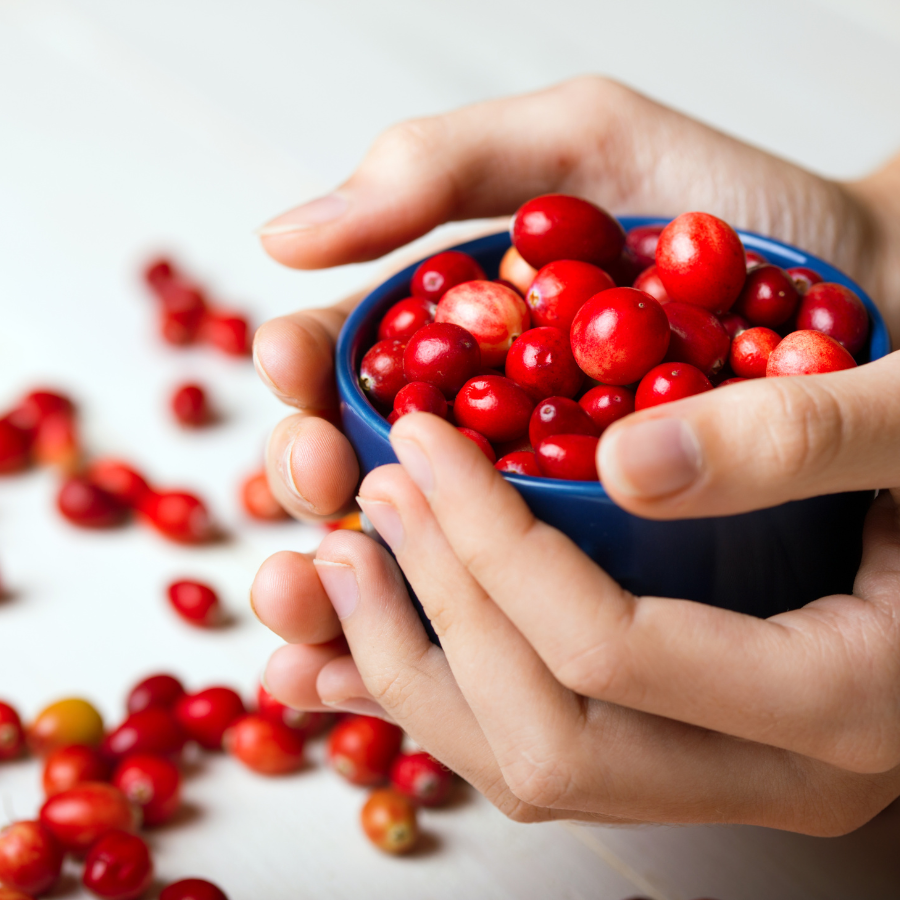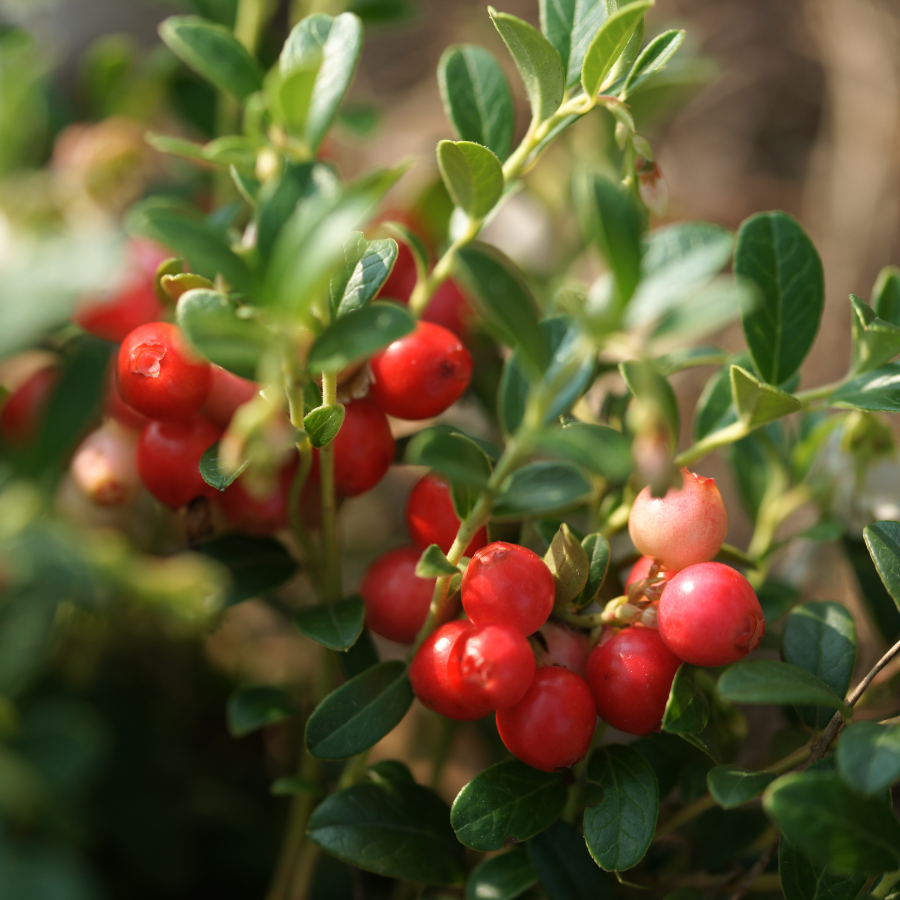Cranberry (Vaccinium macrocarpon) – Premium Seeds from Deodar Seeds
Cranberry (Vaccinium macrocarpon) is a low-growing, evergreen fruit-bearing plant native to North America, where it has been cultivated for centuries. Traditionally used by indigenous peoples for food, medicine, and natural dyes, cranberries are now globally recognized for their high antioxidant content and exceptional health benefits. This hardy plant thrives in cool, acidic wetlands and is widely cultivated for its tart, nutrient-rich berries.
Plant Characteristics
Cranberry plants form dense, spreading mats with thin, trailing vines reaching 15–30 cm (6–12 inches) in height and spreading up to 1–2 meters (3–6 feet) across. They produce small, glossy, dark green leaves that turn reddish in fall. Delicate pink flowers appear in late spring to early summer, followed by round, bright red berries that measure 0.8–1.5 cm (0.3–0.6 inches) in diameter and weigh 1–2 grams (0.03–0.07 oz) per fruit. The berries mature in autumn and can be harvested fresh or dried.
Taste and Health Benefits
Cranberries have a sharp, tart flavor with a slight natural sweetness when fully ripe. They are packed with vitamin C, vitamin K, fiber, and powerful antioxidants, promoting urinary tract health, cardiovascular support, and immune function. Their anti-inflammatory and antimicrobial properties make them a staple in herbal medicine and functional nutrition.
Cultivation Guidelines
Cranberries thrive in cool, temperate climates and prefer acidic, sandy or peat-rich soil with a pH of 4.0–5.5. Seeds require cold stratification for 3–4 months before sowing. Once stratified, plant in moist soil at 18–22°C (65–72°F), with germination occurring within 4–6 weeks. The plants require consistent moisture and benefit from mulching with sand or peat moss to mimic their natural wetland habitat. Cranberries typically begin producing fruit within 3–4 years after planting.
Uses and Applications
Cranberries are widely used in juices, sauces, jams, dried fruit mixes, and desserts. Their intense flavor makes them a favorite for baking and holiday dishes. Medicinally, cranberries are known for their urinary tract support and anti-inflammatory benefits, commonly used in teas, capsules, and tinctures. The dense, trailing growth also makes cranberries an excellent ground cover for acidic soils.
Seed Quality and Packaging
Our cranberry seeds are carefully selected from high-yielding, organically grown plants, ensuring strong germination rates and superior fruit quality. They are cleaned, tested, and packaged to maintain freshness and viability.
Shipping Information
Orders are processed within 1–2 days, with delivery typically completed within 1–2 weeks. We ship across India and worldwide, ensuring access to these premium cranberry seeds for growers everywhere.
Grow this nutrient-rich superfruit with premium seeds from Deodar Seeds.
Cranberry (Vaccinium macrocarpon) is a low-growing, evergreen fruit-bearing plant native to North America, where it has been cultivated for centuries. Traditionally used by indigenous peoples for food, medicine, and natural dyes, cranberries are now globally recognized for their high antioxidant content and exceptional health benefits. This hardy plant thrives in cool, acidic wetlands and is widely cultivated for its tart, nutrient-rich berries.
Plant Characteristics
Cranberry plants form dense, spreading mats with thin, trailing vines reaching 15–30 cm (6–12 inches) in height and spreading up to 1–2 meters (3–6 feet) across. They produce small, glossy, dark green leaves that turn reddish in fall. Delicate pink flowers appear in late spring to early summer, followed by round, bright red berries that measure 0.8–1.5 cm (0.3–0.6 inches) in diameter and weigh 1–2 grams (0.03–0.07 oz) per fruit. The berries mature in autumn and can be harvested fresh or dried.
Taste and Health Benefits
Cranberries have a sharp, tart flavor with a slight natural sweetness when fully ripe. They are packed with vitamin C, vitamin K, fiber, and powerful antioxidants, promoting urinary tract health, cardiovascular support, and immune function. Their anti-inflammatory and antimicrobial properties make them a staple in herbal medicine and functional nutrition.
Cultivation Guidelines
Cranberries thrive in cool, temperate climates and prefer acidic, sandy or peat-rich soil with a pH of 4.0–5.5. Seeds require cold stratification for 3–4 months before sowing. Once stratified, plant in moist soil at 18–22°C (65–72°F), with germination occurring within 4–6 weeks. The plants require consistent moisture and benefit from mulching with sand or peat moss to mimic their natural wetland habitat. Cranberries typically begin producing fruit within 3–4 years after planting.
Uses and Applications
Cranberries are widely used in juices, sauces, jams, dried fruit mixes, and desserts. Their intense flavor makes them a favorite for baking and holiday dishes. Medicinally, cranberries are known for their urinary tract support and anti-inflammatory benefits, commonly used in teas, capsules, and tinctures. The dense, trailing growth also makes cranberries an excellent ground cover for acidic soils.
Seed Quality and Packaging
Our cranberry seeds are carefully selected from high-yielding, organically grown plants, ensuring strong germination rates and superior fruit quality. They are cleaned, tested, and packaged to maintain freshness and viability.
Shipping Information
Orders are processed within 1–2 days, with delivery typically completed within 1–2 weeks. We ship across India and worldwide, ensuring access to these premium cranberry seeds for growers everywhere.
Grow this nutrient-rich superfruit with premium seeds from Deodar Seeds.
Cranberry seeds (Vaccinium macrocarpon) - 15
- Brand: Deodar Seeds
- Product Code: FR50
- Availability: In Stock
₹342.00

